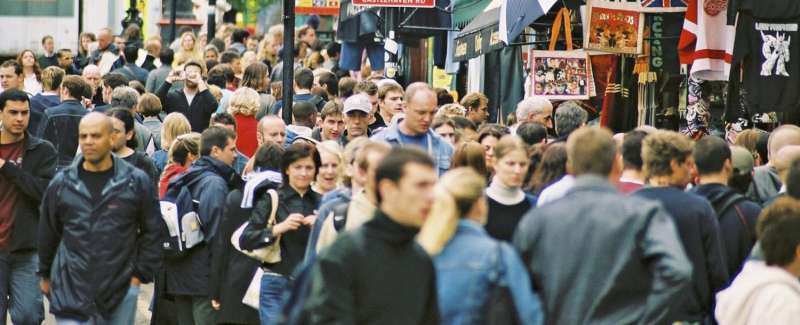Blood samples give clues to social inequality

More than a decade's worth of blood samples in Portugal and Ireland are being analysed to look for clues about the health impacts of socio-economic inequalities on children.
The aim is to convince policymakers to take action on poverty and target people while they are young enough that it can improve their health in later life.
"What counts in adult disease are early experiences in life—your socio-economic status in childhood—and this is already a policy indication that shows that we should intervene early," said Professor Paolo Vineis from Imperial College London, UK.
"However, the policies to reduce poverty are often targeted at elderly people."
He coordinates the EU-funded LIFEPATH project, which is looking at the biological processes in the body to investigate how people with different income, education and occupation levels – known as socio-economic status – age differently.
"What's new is that we try to connect socio-economic status, intermediate factors like smoking, and outcomes like healthy ageing, different diseases and also mortality," explained Prof. Vineis.
"But the most original part of the project is that we also use biomarkers—systematic measurements of sets of markers such as proteins, DNA, and RNA changes—and looking into these, we try to identify biological pathways that link behavioural exposures and socio-economic status with health outcomes."
Earlier this year the project published results showing that being poor can decrease life expectancy almost as much as physical inactivity—an average loss of life of 2.1 years. The team looked into data from nine countries across three continents and found that low socio-economic status can take an average of 2.6 years of life off for men and 1.5 for women.
Tell-tale molecules
Now, the LIFEPATH researchers hope that the blood samples from Portugal and Ireland will reveal the effects of poverty in children. They are also using biomarkers in the blood to compare people's biological age to their chronological age, which can be used as another measure of health inequality.
"This (data) gives us information about socio-economic status dating back to infancy, linked with cognitive development, asthma and other diseases; while we also have blood samples and outcomes in adults like causes of death, cancer, cardiovascular diseases and indicators of quality of ageing," said Prof. Vineis.
Already, LIFEPATH has seen a link between being poor and poor health in both countries—and their next step is to see if the global economic recession has had any impact on these health outcomes.
Socio-economic inequality is not yet targeted as a risk factor in the health strategies of intergovernmental bodies like the World Health Organization, and Prof. Vineis says national governments are also lagging on action. "In spite of formal declarations and speeches, not much is being done," he said.
While LIFEPATH aims to help change this by pushing for interventions on poverty's most significant health impacts, another EU-funded project named PINQ is looking to better understand some of the factors blocking such policies.
Deepening inequality
In 2015, the World Economic Forum named deepening inequality as the world's most pressing issue, an act of recognition that PINQ researcher Dr Nikhil Sengupta, from the University of Oxford, UK, says is mirrored in public opinion.
"In large-scale surveys, you see that people state a preference for living in more equal societies, but we have a curious problem with that. Despite this consensus, many measures designed to tackle inequality still remain quite contentious, politically unpopular and don't gain the traction needed to be implemented."
He believes this intention-reality mismatch in policy approval may be explained by a phenomenon also seen in attitudes to racial policy—the so-called principle implementation gap—and its causes.
"More and more over the past decades, people have developed a shared consensus that racial equality is better than racial inequality, but there still remains a huge amount of resistance to actual policies that might reduce systemic racism. For example, quota systems which might help minorities enter into professions in which they are traditionally underrepresented."
PINQ will draw on the New Zealand Attitudes and Values Study—one of the richest datasets on policies and attitudes in the world, following 20 000 people over eight years—and seek similar data in the UK, as part of a group planning to survey 3 000 Brits across minority and majority groups.
Dr Sengupta hopes to uncover new evidence about why opposition to policies designed to reduce inequality arises, potentially leading to better ways of communicating these to the public.
"Where does this come from and what are the psychological mechanisms that explain this resistance that people have? I think if we understand more about the individual psychology of it, we can understand more about why communication around these issues can be so difficult."
More information: Silvia Stringhini et al, Socioeconomic status and the 25 × 25 risk factors as determinants of premature mortality: a multicohort study and meta-analysis of 1·7 million men and women, The Lancet (2017). DOI: 10.1016/S0140-6736(16)32380-7














